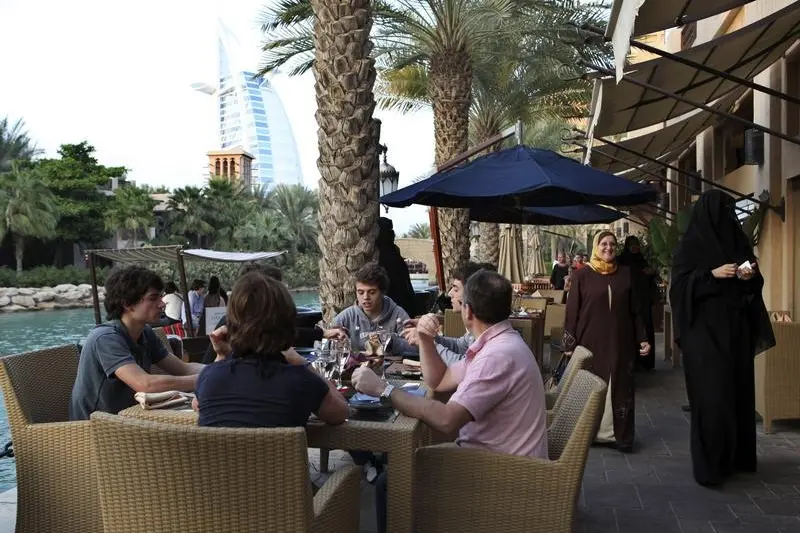PHOTO
By Sarah Jacotine
Fans of Dubai’s restaurant scene were shocked last year when several of the city’s favourite long-standing venues announced they would be taking orders for the last time.
Award-winning British brand Rivington Grill closed both its outlets at Madinat Jumeirah and Souq Al Bahar, while three popular venues at Emirates Towers - Tokyo@thetowers, Harry Ghatto’s and The Ivy – were shuttered to make way for a revamp at the twin towers.
As these much-loved names passed into the history books, Emma Banks, general manager of Jumeriah Restaurant Group (JRG), which operated the brands, said it is a sign of the new reality for food and beverage operators in the city.
“People who have been in Dubai a while are spoiled from the heyday of 2010 -2014, and the current conditions are almost like a reality check,” she told Zawya in an interview on the last day of last week’s Gulfood, the world's largest annual food and hospitality event, held each year in Dubai.
Restaurant closures are a positive sign of a streamlining of the industry and the UAE hospitality sector is falling more in line with its counterparts around the world, Banks said.
“Companies are looking at their costs and making sensible decisions around recruitment and their cost base. We’re seeing more of a plateau and getting to real trading conditions; it’s okay to have 75-80 percent occupancy in your hotel as opposed to 95 percent as the norm because it isn’t in the rest of the world,” she added.
JRG was launched in early 2015 by Dubai’s Jumeirah Group – the hotel operator behind the emirate’s iconic sail-shaped Burj al Arab hotel - to oversee the development and management of the company’s extensive F&B portfolio of around 60 restaurants and bars, including brands such as Pai Thai, 360, Naya and Tortuga.
Healthy options
As well as taking the tough decision to close some long-established outlets, it also made an undisclosed number of redundancies last summer. Banks maintains the closures were made to make way for new home-grown concepts. JRG is working on a number of fresh F&B concepts for Emirates Towers, which Banks hopes will appeal to the business community in the nearby Dubai International Financial Centre.
“JRG has been asked to work on a new creative, healthy eating concept at the old Tokyo@thetowers premises with the Ministry of Youth. Portion control features greatly, with sharing rather than formal dining, and we will offer a range of foods that are gluten-free, sugar-free, vegan or paleo. The health trend is not a fad and it’s gaining pace in Dubai,” Banks said.
JRG will open this new venture, and reveal its name, in the next fortnight. March will also see the launch of JRG’s first food truck, which it worked on with sister company, master developer Dubai Properties Group.
“We will park our Perry & Blackwelder’s food truck by the Steigenberger Hotel in Business Bay, initially as part of TruckersDXB and then look at other locations,” Banks said.
Classics get a revamp
Some of the older JRG concepts that predate the restaurant management company’s formation will benefit from significant investment this year.
“Noodle House, our 16-year-old home-grown brand, is very tired but still well-loved and popular. We’re repositioning it and using it as a strategic drive brand for us. The new-look Noodle House at Dubai International Airport’s Concourse D has been a great success – we worked with LW Design, the original designer – so we’re going to take that, lift it a little and embark on a roll-out programme at Souk Madinat and BurJuman,” Banks said.
“We’ll retain the brand DNA of an open show-kitchen, street food, fresh food cooked fairly fast, and an organic wood feel but lighten and brighten it. On the menu, we’re going to keep the classics but broaden it to look at modern street food across Asia rather than just Southeast Asia,” she added.
Other JRG concepts that have stood the test of time are The Agency and PierChic, both of which are being redecorated this year in order to compete with the constant influx of new restaurants in Dubai. Banks concedes that maintaining footfall in the face of increased competition is tough but reported “considerable growth” for more than half of JRG restaurants last year.
“There are elements of saturation in the market combined with suppression on footfall but visitor numbers to Dubai are growing – the problem is that their spending power may not be as great as it once was. We do have brands that have had a tough time, and my job is to understand why and fix it. Some brands, we’re going to have to take some decisions on. But if you have an offer that is relevant, you will still fare well.”
Last year showed that no venue, no matter how popular it may be, is immune from the chopping block. However, 2017 will see a whole new set of would-be favourites on the menu, which JRG hopes will whet the appetite of the city’s dining community.
© Zawya 2017





















